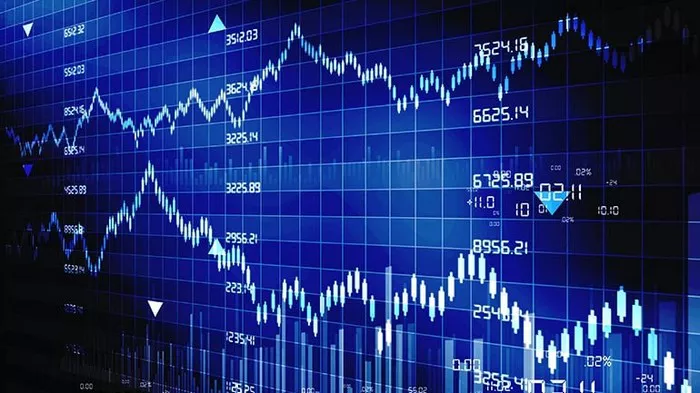Dow futures predictions serve as valuable tools for investors, traders, and analysts seeking insights into future market trends and potential price movements. As derivatives contracts based on the performance of the Dow Jones Industrial Average (DJIA), Dow futures provide a glimpse into market sentiment, expectations, and potential risks. In this article, we delve into the significance of Dow futures predictions, exploring their methodologies, implications, and considerations for market analysis.
Understanding Dow Futures
Dow futures are financial derivatives that allow investors to speculate on the future direction of the Dow Jones Industrial Average. Traded on futures exchanges such as the Chicago Mercantile Exchange (CME) and the Intercontinental Exchange (ICE), Dow futures contracts represent agreements to buy or sell the DJIA at a predetermined price and date in the future.
Dow futures provide investors with an opportunity to hedge against market risk, speculate on future price movements, and gain exposure to the broader stock market. By trading Dow futures contracts, investors can capitalize on market trends and make informed decisions about portfolio allocation and risk management.
Factors Influencing Dow Futures Predictions
Several factors influence Dow futures predictions, including:
Market Sentiment: Market sentiment plays a crucial role in shaping Dow futures predictions, as investor confidence and expectations drive market movements. Positive sentiment can lead to bullish predictions, while negative sentiment may result in bearish forecasts.
Economic Indicators: Economic indicators such as GDP growth, unemployment rates, consumer spending, and manufacturing activity can impact Dow futures predictions by providing insights into the health of the economy and prospects for future growth.
Geopolitical Events: Geopolitical events such as trade tensions, political instability, and global conflicts can influence Dow futures predictions by creating uncertainty and volatility in the market.
Interest Rates and Monetary Policy: Changes in interest rates and monetary policy decisions by central banks can affect Dow futures predictions by influencing borrowing costs, inflation expectations, and investor sentiment.
Company Earnings: Earnings reports and corporate announcements from Dow component companies can impact Dow futures predictions by providing insights into company performance and future prospects.
Methodologies for Dow Futures Predictions
Several methodologies are used to predict Dow futures movements, including:
Technical Analysis: Technical analysis involves analyzing historical price data and chart patterns to identify trends, support and resistance levels, and potential entry and exit points for trades.
Fundamental Analysis: Fundamental analysis involves examining economic, financial, and company-specific factors to assess the intrinsic value of an asset and make predictions about future price movements.
Sentiment Analysis: Sentiment analysis involves analyzing market sentiment, investor sentiment, and news sentiment to gauge market expectations and sentiment trends.
Machine Learning and Artificial Intelligence: Machine learning and artificial intelligence techniques can be used to analyze large datasets, identify patterns, and make predictions about future market movements.
Implications of Dow Futures Predictions
Dow futures predictions have significant implications for investors, traders, and market participants, including:
Risk Management: Dow futures predictions can help investors and traders manage risk by providing insights into potential market trends, volatility, and uncertainty.
Portfolio Allocation: Dow futures predictions can inform portfolio allocation decisions by identifying opportunities for asset diversification and risk mitigation.
Trading Strategies: Dow futures predictions can inform trading strategies by providing insights into potential entry and exit points, trend reversals, and market sentiment.
Market Analysis: Dow futures predictions can help analysts and researchers analyze market trends, assess economic conditions, and identify potential risks and opportunities.
Considerations for Dow Futures Predictions
While Dow futures predictions can provide valuable insights into future market trends, it is essential to consider several factors when interpreting and using these predictions, including:
Volatility: Dow futures predictions can be subject to volatility and uncertainty, making them inherently risky and unpredictable.
External Factors: Dow futures predictions can be influenced by external factors such as geopolitical events, economic indicators, and company-specific news, which may impact market sentiment and expectations.
Market Sentiment: Dow futures predictions may be influenced by market sentiment and expectations, which can be subjective and prone to biases.
Technical Limitations: Dow futures predictions may be limited by technical factors such as data quality, model accuracy, and computational constraints.
Conclusion
In conclusion, Dow futures predictions play a vital role in informing investment decisions, managing risk, and analyzing market trends. By understanding the methodologies, implications, and considerations for Dow futures predictions, investors, traders, and analysts can make more informed decisions about their investments and navigate the complexities of the financial markets with greater confidence. However, it is essential to recognize the limitations and uncertainties associated with Dow futures predictions and incorporate them into a comprehensive approach to market analysis and risk management.


